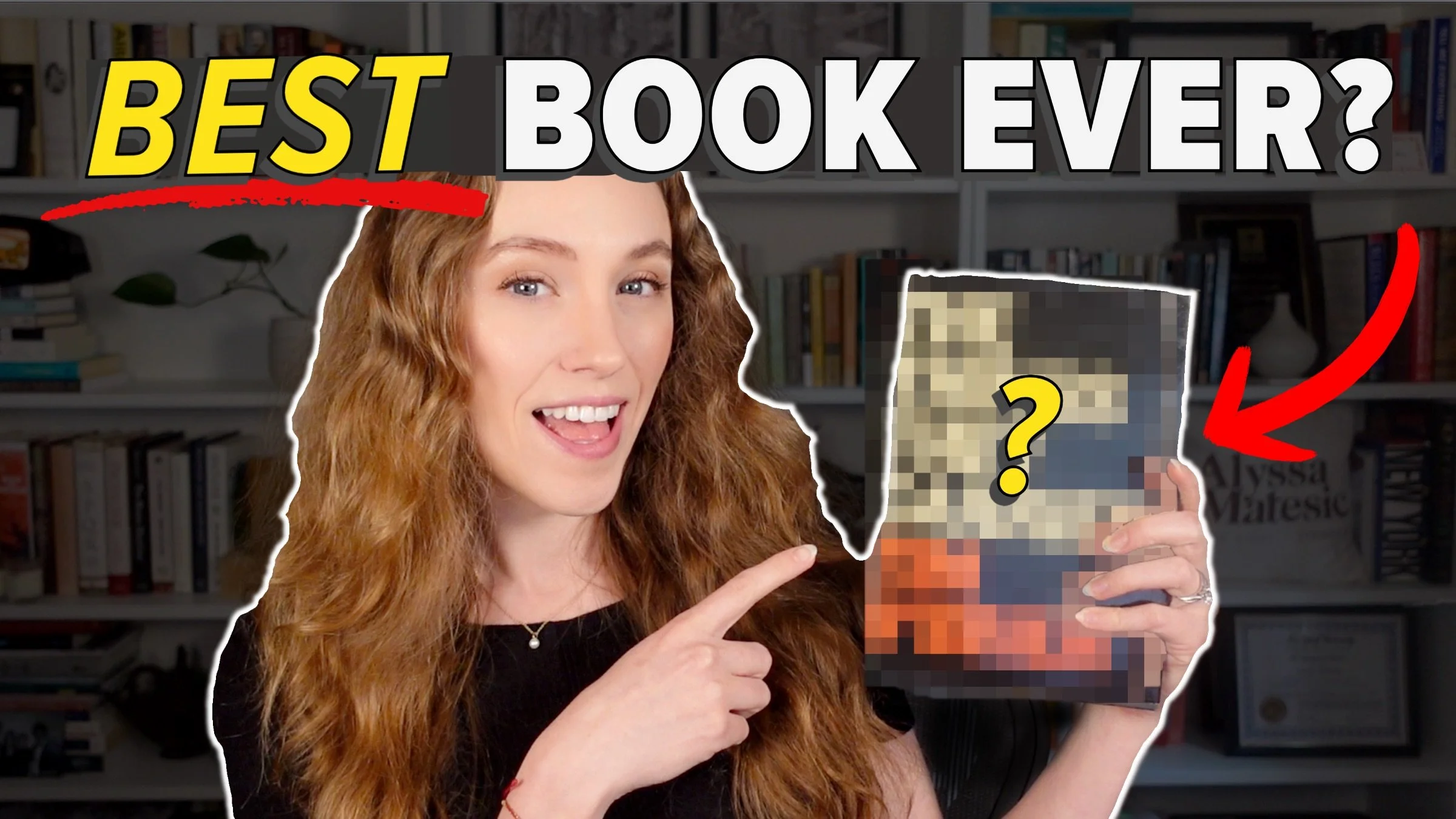The Book That Changed My Life
HIT PLAY OR READ THE POST BELOW:
When I was 17, I read a book that completely changed my life. It rewired how I think about storytelling, human connection, and the thin line between fiction and truth. Looking back now, reading it was a pivotal turning point that led me to choose the career that I did. I didn't even want to read this book at first, but now I consider it essential reading for writers — and really anyone interested in stories. It might hit you the same way that it hit me.
The book is The Things They Carried by Tim O'Brien, written in 1990. It was part of my assigned curriculum in English class in high school, and to be totally honest, I was completely dreading reading it. I wasn't very interested in history at the time, so a book about U.S. soldiers' experience in the Vietnam War didn't sound all that interesting to me.
Then I started reading it — because I was one of those kids who completed every assignment — and I was completely captivated. I was shocked by how much it pulled me in, how much it affected me. It's a read that feels effortless but is also emotionally shattering. I loved it so much that I now have three copies of it, including the version I read in high school, with my annotations and bookmarks still in it.
The book was completely transportive. As a teenage girl in a suburban high school in the Texas suburbs, I couldn't have been further from the front lines of the Vietnam War—and admittedly, I knew very little about the war to begin with. But the book made me feel like I was right there.
What makes The Things They Carried such an effective war story is that, rather than focusing on the guns, the politics, and the explosions, Tim O'Brien focuses on the human experience of the war: the emotions that the soldiers go through, the deaths of enemies and friends that haunt them, the yearning for their loved ones back home, the small unexpected moments of beauty on the battlefront.
It's structured as a collection of linked short stories, each one focusing on different characters and situations on the battlefield. Sometimes they're high-stakes and intense, and other times they're quiet and mundane. It's really a book about trauma, memory, guilt, shame, love—in short, the full spectrum of the human experience.
Then there’s the writing itself — it’s raw, sometimes uncomfortably so. It’s beautifully spare, with each word packing a punch and intentionally chosen. Let me show you what I mean. Here’s one of my favorite passages that I underlined all those years ago:
By telling stories, you objectify your own experience. You separate it from yourself. You pin down certain truths. You make up others. You start sometimes with an incident that truly happened — like that night in the crap field — and you carry it forward by inventing incidents that did not in fact occur but that nonetheless help to clarify and explain.
He’s saying here that sometimes stories can be truer than what actually happened because they speak to the emotional truth — the real heart of that experience — which I think is so spot-on and perceptive. This is the major lesson from the book that I carry with me today in my work as a book editor. It empowers writers to not only write to entertain others, but to clarify and explain their own experiences — to use writing to make sense of this messy, sometimes brutal, sometimes beautiful world.
Here’s another passage that I love:
The thing about a story is that you dream it as you tell it, hoping that others might then dream along with you. And in this way, memory and imagination and language combine to make spirits in the head. There is the illusion of aliveness.
This speaks to how stories are alive — almost in a spectral way — how they can connect us on another plane that maybe we don’t fully understand. It echoes my favorite quote of all time, from another author whose work I love, Joan Didion: We tell ourselves stories in order to live. Which implies that we can’t live without stories. They’re as essential to our beings as water, as air.
One of the most interesting parts of The Things They Carried, to me as someone who is interested in writing — especially writing from life — is that it’s considered semi-autobiographical. The protagonist’s name is Tim O’Brien, who is himself a Vietnam veteran. Yet we understand that the stories aren’t meant to be taken as perfectly factual accounts. He tells us that. He even dedicates the book to the fictional men of the Alpha Company, which further blurs the line between what we’re reading and what actually happened.
When I finished the book for the first time, I felt cracked open. I not only had a completely different understanding of life and death and war, but also of writing itself — what it truly is and how much power it wields. I felt even more convinced that I wanted to spend my life bringing stories into the world, which led me to study English and creative writing, then go on to work in book publishing and become an editor.
If you're at all interested in writing — or just an eye-opening story — give it a try. I hope you’ll find it as inspiring as I did at 17.






